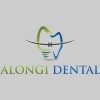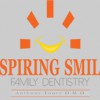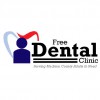
Dr. Ken Alongi is a native Alabamian, born in Huntsville, Alabama and has lived in this fine state all of his life. Dr. Alongi is married to a former Mrs. Alabama, Sandy. They have three daughters, Ashlyn Marie, Payton Elizabeth, and Presley Nicole. Dr. Ken Alongi received his Bachelor of Arts from the University of Alabama and received his Doctor of Dental Medicine degree from the University of Alabama School of Dentistry in 1988.
While in dental school, Dr. Alongi was a member of Psi Omega. Dr. Alongi is a Fellow of the Academy of General Dentistry where he has over 750 continuing education hours. He has an Achievement Award with the American Orthodontic Society and is working towards his Fellowship and Diplomat Award in the Society. Dr. Alongi enjoys spending time traveling with his family when he is not working and makes time to get a round of golf in every now and then.
Dr. Ken Alongi and Staff are committed to providing all his patients with the most advanced dental care and technology available.
While in dental school, Dr. Alongi was a member of Psi Omega. Dr. Alongi is a Fellow of the Academy of General Dentistry where he has over 750 continuing education hours. He has an Achievement Award with the American Orthodontic Society and is working towards his Fellowship and Diplomat Award in the Society. Dr. Alongi enjoys spending time traveling with his family when he is not working and makes time to get a round of golf in every now and then.
Dr. Ken Alongi and Staff are committed to providing all his patients with the most advanced dental care and technology available.
Services
Thank you for choosing our practice for your oral health needs.
We look forward to meeting you and will strive to make each visit to our office a pleasant experience.
Your first visit will include a full mouth x-ray, a thorough oral exam, an oral cancer screening and a cleaning.
The doctor will inform you of any dental disease that he diagnoses, and of the recommended treatments necessary to restore your teeth to excellent dental health.
He may also suggest optional cosmetic dental procedures that could greatly enhance the appearance of your teeth and smile.
We look forward to meeting you and will strive to make each visit to our office a pleasant experience.
Your first visit will include a full mouth x-ray, a thorough oral exam, an oral cancer screening and a cleaning.
The doctor will inform you of any dental disease that he diagnoses, and of the recommended treatments necessary to restore your teeth to excellent dental health.
He may also suggest optional cosmetic dental procedures that could greatly enhance the appearance of your teeth and smile.
For more information concerning pediatric dentistry, please visit the website for the American Academy of Pediatric Dentistry.
The pediatric dentist has an extra two to three years of specialized training after dental school, and is dedicated to the oral health of children from infancy through the teenage years.
The very young, pre-teens, and teenagers all need different approaches in dealing with their behavior, guiding their dental growth and development, and helping them avoid future dental problems.
The pediatric dentist has an extra two to three years of specialized training after dental school, and is dedicated to the oral health of children from infancy through the teenage years.
The very young, pre-teens, and teenagers all need different approaches in dealing with their behavior, guiding their dental growth and development, and helping them avoid future dental problems.
For more information concerning dentistry, please visit the website for the American Dental Association.
The American Dental Association (ADA) recommends visits to the dentist at least once every six months for a professional exam and cleaning.
Regular dental visits are necessary for the maintenance of healthy gums and teeth.
Your dentist may recommend more frequent visits, depending on the status of your oral health.
When one or more teeth are missing, the remaining teeth can shift out of position, which can lead to a change in your bite, the loss of additional teeth, decay and gum disease.
The American Dental Association (ADA) recommends visits to the dentist at least once every six months for a professional exam and cleaning.
Regular dental visits are necessary for the maintenance of healthy gums and teeth.
Your dentist may recommend more frequent visits, depending on the status of your oral health.
When one or more teeth are missing, the remaining teeth can shift out of position, which can lead to a change in your bite, the loss of additional teeth, decay and gum disease.
The American Association of Orthodontists (AAO) recommends an orthodontic screening for children by the age of 7 years.
At age 7 the teeth and jaws are developed enough so that the dentist or orthodontist can see if there will be any serious bite problems in the future.
Most of the time treatment is not necessary at age 7, but it gives the parents and dentist time to watch the development of the patient and decide on the best mode of treatment.
When you have time on your side you can plan ahead and prevent the formation of serious problems.
At age 7 the teeth and jaws are developed enough so that the dentist or orthodontist can see if there will be any serious bite problems in the future.
Most of the time treatment is not necessary at age 7, but it gives the parents and dentist time to watch the development of the patient and decide on the best mode of treatment.
When you have time on your side you can plan ahead and prevent the formation of serious problems.
If the procedure was in the lower jaw the tongue, teeth, lip and surrounding tissue will be numb or asleep.
If the procedure was in the upper jaw the teeth, lip and surrounding tissue will be numb or asleep.
Often, children do not understand the effects of local anesthesia, and may chew, scratch, suck, or play with the numb lip, tongue, or cheek.
These actions can cause minor irritations or they can be severe enough to cause swelling and abrasions to the tissue.
Monitor your child closely for approximately two hours following the appointment.
If the procedure was in the upper jaw the teeth, lip and surrounding tissue will be numb or asleep.
Often, children do not understand the effects of local anesthesia, and may chew, scratch, suck, or play with the numb lip, tongue, or cheek.
These actions can cause minor irritations or they can be severe enough to cause swelling and abrasions to the tissue.
Monitor your child closely for approximately two hours following the appointment.
Reviews

Be the first to review Kenneth A Alongi DMD, PC.
Write a Review



